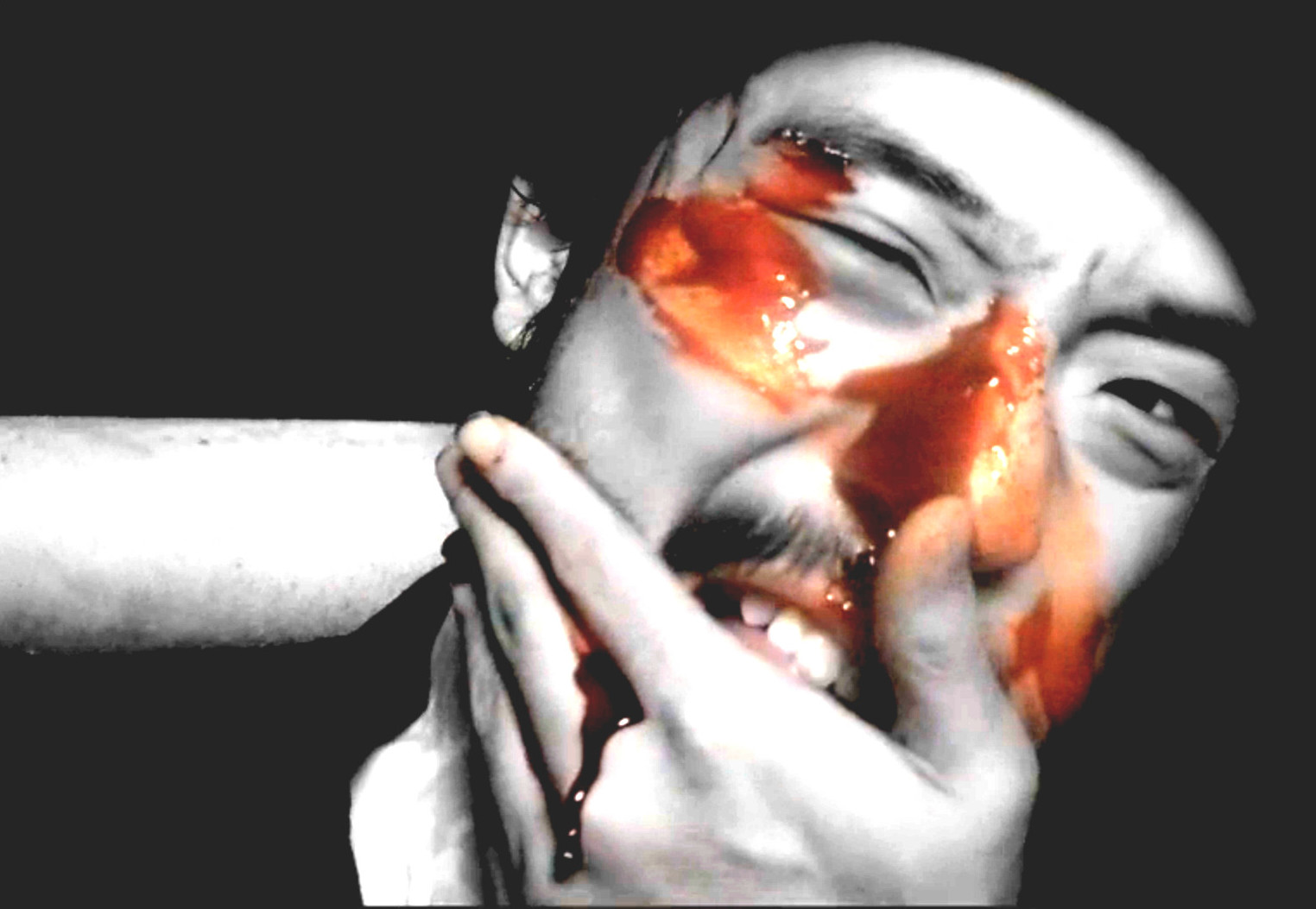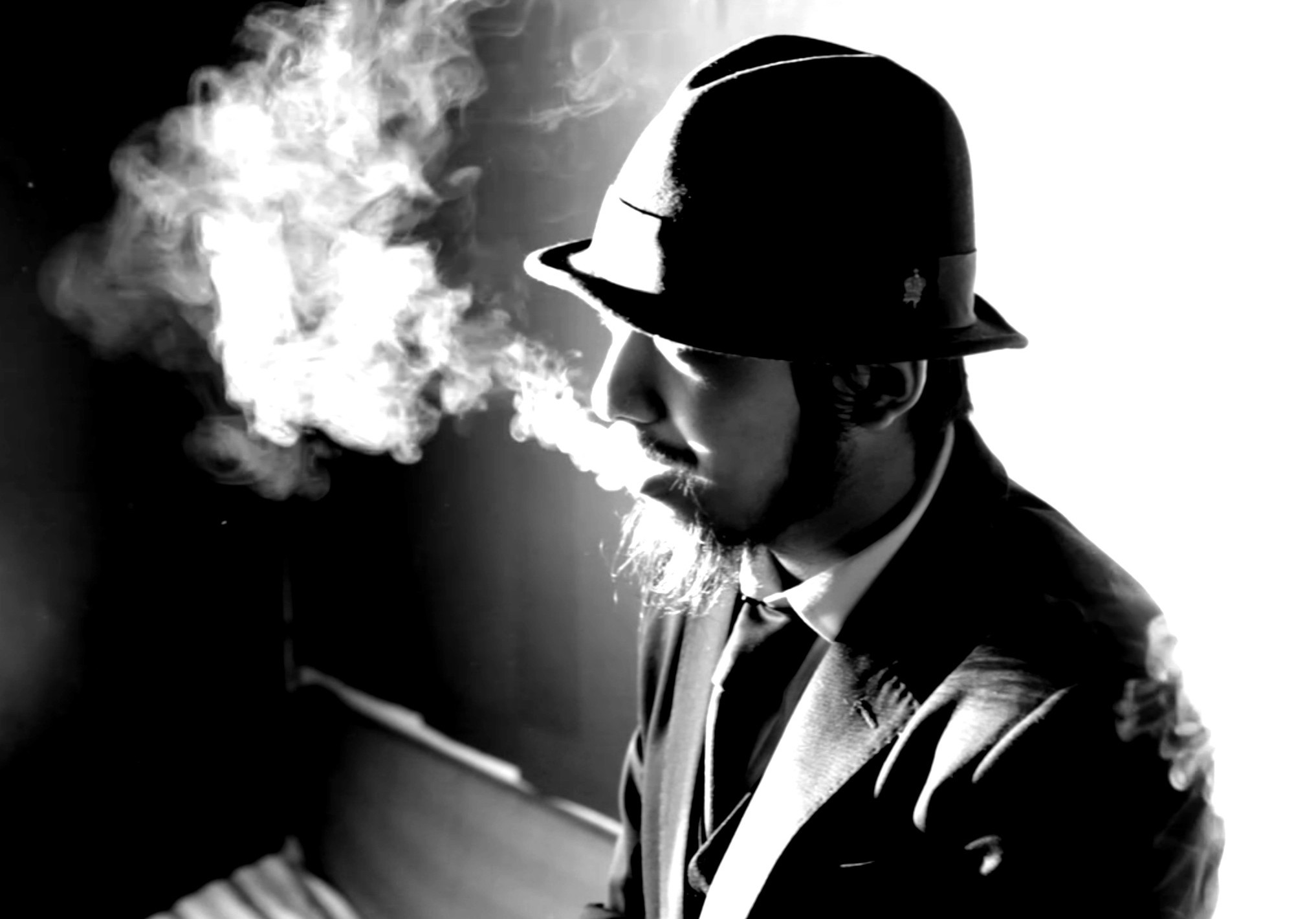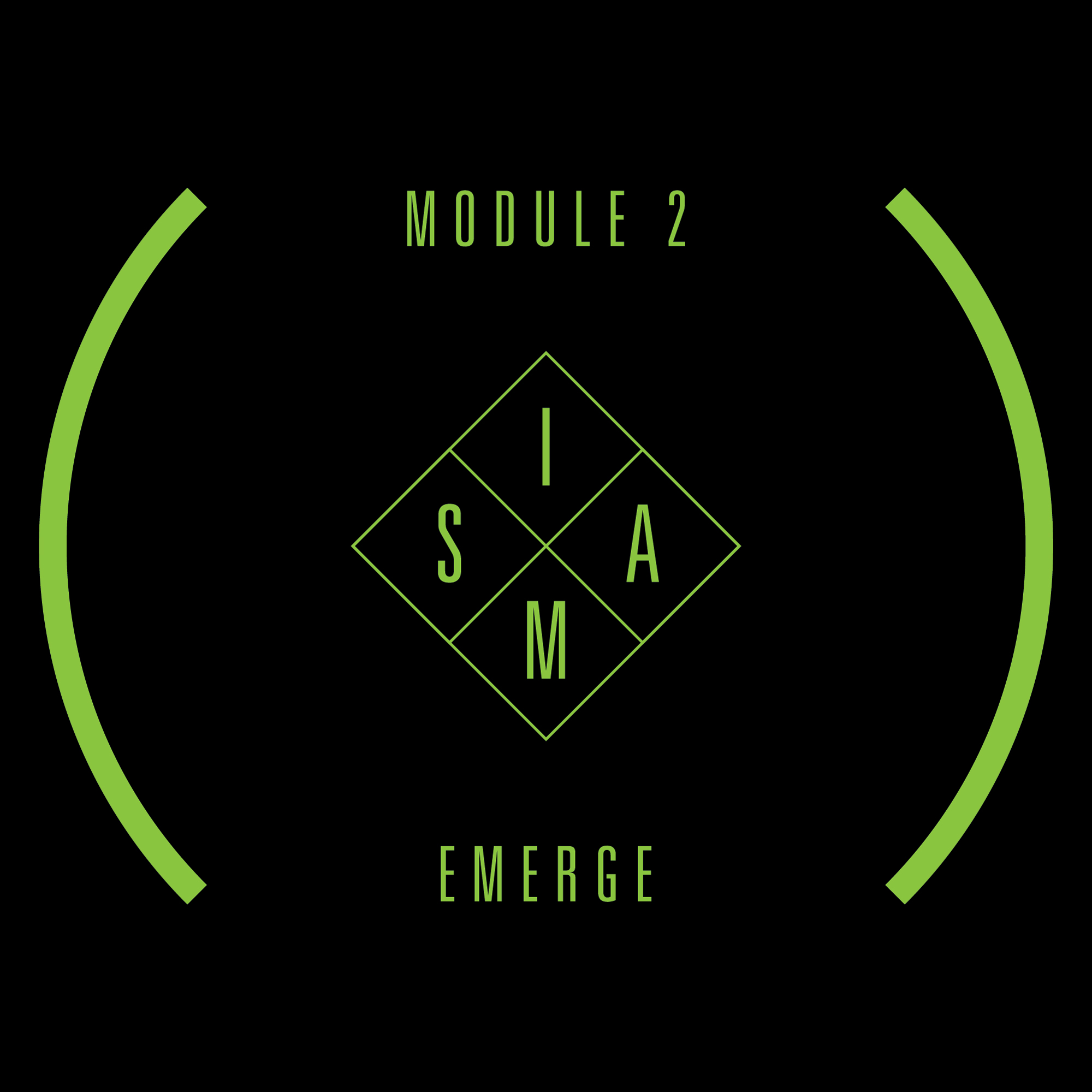Michael Pettis on the End of D-22
终极线报:Michael Pettis在D-22的最后时刻
By Josh, 2012年 1月 4日
《 看中文采访 》
D-22 is scheduled to close next week. Founder Michael Pettis explains why and what’s next:
pangbianr: By now the rumors have spread so widely that it’s common knowledge D-22 will close… Why? How long has this been in the works?
Michael Pettis: We’ve really wanted to do something very different in the Beijing music scene for a long time and so we have been thinking about closing D22 pretty much since the beginning of 2011. Our original plan was to close on our sixth anniversary, on April 1, 2012, but the owners of the space have asked us to close earlier because they are concerned that 2012 may be a pretty sensitive year.
It wasn’t an easy decision of course, especially since the audience had been getting bigger, particularly on weekdays, and this suggested that our drive to get more local students to attend music shows was working. We have always lost money on the club, but in 2011 we lost much less than ever before – which is a victory of sorts, I guess.
pbr: When will the club actually close?
MP: I think the last show will be January 10 which, very fittingly, is a Zoomin’ Night, because it was the development of the Zoomin’ scene that was probably the biggest factor in my decision to close D22 and open another space.
pbr: In recent years Beijing has seen proliferation of new live music venues, many of which are located more centrally in Beijing’s Gulou district. How has this affected D-22?
MP: We always saw our role as to find and support talented new musicians so it didn’t really matter to us, especially since the Gulou clubs tend to draw a pretty different crowd from ours – older and more expats, especially non-student expats, and mostly looking for more familiar sounds and well-known bands. Whenever our bands became big we would only let them do secret weekday shows at D22 and book the big weekend shows for them in other places around Gulou. Our favorite was always Yugong Yishan, which may be the biggest club in Beijing but is still the one most willing to take risks on new music.
pbr: What was the goal when D-22 initially opened? Do you think you accomplished this goal?
MP: Our first goal was a little immodest, but we thought that with the right kind of support Beijing had enough talented musicians to become one of the most exciting new music cities in the world, and we wanted to be part of that process. This happened much quicker than I thought it would, to tell the truth. Our second goal was to help shift the audience for new music in Beijing, and in China more generally. Several years ago expats and locals in the scene dominated the audience, but for me it was clear that if Chinese college students didn’t become the backbone of the scene it would never develop. That’s why we opened in Wudaokou and catered to Chinese students, even though they have less money and don’t drink as much as the expats.
pbr: If you could change anything about D-22’s nearly 6-year run, what would it be?
MP: I would have spent more money on the bathrooms and the electrical system. There is nothing worse than the nagging worry during a great show that we will have another bathroom disaster or the circuits will once again blow out.
pbr: In many people’s minds, D-22 is synonymous with Maybe Mars, since the club and the label are both owned and operated by you. Yet some of the bands that cut their teeth and came of age at D-22, such as Hedgehog and Queen Sea Big Shark, went on to record albums for Modern Sky and other labels. In your mind, what is the connection between D-22 and Maybe Mars? I.e., is one a branch of the other, or are they separate units with different objectives?
MP: They are not synonymous at all, although they both have very similar objectives, which is to support local musicians that we think have a great deal of talent. Many if not most of the great bands and musicians that have emerged in Beijing over the past five or six years were closely associated with D22, but we simply couldn’t sign them all – especially [Queen Sea Big Shark], who signed with Modern Sky before we even started our own label. Putting out CDs nowadays is a money loser, and the more performers you have the bigger the bills, especially the way we do it, since we try to get high quality recordings even for bands that will always be too experimental and difficult ever to sell many CDs.
Actually our problem with the label has been very different. Every band that we asked to join Maybe Mars, with one exception when we first started the label, has joined our label, and even that exception asked us last year if they could switch from their label to ours. The problem for us is that a lot of bands that we love but are not prepared to take on get upset if we don’t sign them because they associate themselves strongly with D22 and assume that D22 and Maybe Mars are the same. If I had enough money and could easily hire more of the kind of first-rate people we have working at the label, I would expand the label tremendously, but I need to make more money first.
pbr: There are also rumors that the team behind D-22 will open a new club. Will the aesthetic and mission of this new venue be a continuation of D-22’s, or something different?
MP: It will be very different, I think, and much more oriented towards a group of very sophisticated and talented young musicians that congregate especially around our Zoomin’ nights. In fact this was the main reason we decided to close D22. There is a really interesting scene developing around the Zoomin’ and the No Beijing musicians, with a lot more experimenting with different sounds, many short-term on-stage or in-studio collaborations between different musicians, and lots of swapping ideas and styles. Our new space is going to be designed with this kind of thing in mind. I was eager to do something like this for years, but six years ago we would have never been able to pull it off. The new space will be an attempt to see if we can pull it off in today’s Beijing.
pbr: Do you have any closing remarks to sign off the D-22 era?
MP: It’s been too busy to think in terms of the end of an era, but I will say that the last few weeks in a sense explain what we did well and also, perhaps paradoxically, why we have to close D22. As you know the club was pretty much packed for much of the past two weeks and we had three nights in which the audience was so large that by 10:30 we had to close the doors and turn away hundreds of kids at the door – 350 people is our limit.
This is very positive in one sense, because a few years ago no one would have imagined such large audiences lining up for hours in frigid weather to see these bands, but it also convinced me further that we really couldn’t keep on going as we were. Strangely enough when D22 is packed I am more than ever convinced that we can and should move on to something else. I am happy in an abstract way when the club is full because of course the musicians like big audiences, but honestly I hate being there during those times – it is just hard work, not music, and if you are losing money anyway it is hard to justify working so hard.
D-22: May 1, 2006 ~ Jan 10, 2012
Not in China? Watch on Vimeo.
《 View English Interview 》
中文编译Lulu Chow
D-22将在下个星期按计划关门。D-22的创始人Michael Pettis对关门一事做了说明,同时也谈到了未来的打算:
旁边儿:迄今为止,有关D-22关门的谣言已经肆虐到几乎每个人的耳孔里了,你们也最终发布了消息,证实关门确为事实。我们想知道具体的原因是什么,你是在什么时候有了关门的打算?
Michael Pettis:我们一直以来就非常想在北京独立音乐领域里做一些不一样的事情,可能是一些超越现场音乐形式的东西,或者伴随着地下音乐圈里的新势力,做更多的尝试。关门的想法在2011年初就已经浮现在我脑海里了。我们最初的计划是在6周年纪念日的时候正式关门,也就是2012年4月1号。但很遗憾,我们的房东等不了那么久,他希望我们能尽量提早关门、终止合同,至于什么原因我也不清楚,他可能出于对2012这个敏感的年份的恐惧吧,对此我个人非常理解。
当然这对我自己来说,断然不是一个轻松的决定,特别是整个这一年来乐迷观众的队伍日益壮大,特别是双休日的人潮激增。我很高兴,因为这恰恰证明了我们力图把学生乐迷阵营引向D22计划终于奏效了。尽管酒吧的生意照样赔钱,但是值得庆幸的是2011年我们赔的是最少的一年,这的确称得上是一种胜利。
旁边儿:酒吧会在什么时间正式关闭?
MP:我想最后一次演出会在2012年1月10日,我很欣慰,或者可以说相当应景的是,那一天是一个星期二,是燥眠夜的演出。因为事实上,燥眠夜乐队的蓬勃发展是我决定关闭D22,开始寻找新驻地的直接原因。我在这其中看到我做音乐事业的初衷,看到更加新鲜的生命力。就是这种蓬勃又变动的生命力让我最终下定决心改变策略,挪动脚步。
旁边儿:最近几年,聚集在市中心,逐渐繁衍遍布了更多的演出场地,随着地铁南锣鼓巷和后海站的在建,鼓楼一带延续了多年来集胡同休闲餐饮和乐手酒吧文化的传统,退休乐手和独立设计师投身手工复古小商品行业、创意服饰家居产业,成功的刺激了商业的同时,也更具备凝聚力,使之成为了当下北京更稳固的新流行文化阵地。相对这种日益丰满的聒噪,你觉得,对身处海淀的D-22是否构成潜在的压力和影响呢?
MP:我们一直以来扮演的角色更像是一个退居二线的挖掘者和启蒙师,致力于发现并支持年轻的音乐实践者们,所以演出场所的多样化和集聚性,对我们来说影响不是很大。特别是活跃在鼓楼一带的演出场地更乐于把眼光放在异国观光客和移居者身上,而且基本是非学生团体的外国移居者身上,商业气氛比较浓。音乐上也更倾向于被人们熟悉的,已经成名的乐队,和D22的方向是有很大差别的。但是我们一直在与他们合作一些大型演出,对于那些发迹于D22的乐队,在他们成名之后,我们都是只推荐他们在D22演私人聚会式的小场子,然后帮他们在鼓楼一带策划大场子。目前为止我们最喜欢的地点是愚公移山,因为他们可能是目前北京最大的一间愿意承担风险支持年轻乐队的演出场地了。
旁边儿:在D-22刚刚开始的时候,你的最初目标是什么?你认为到现在为止,你完成了这个目标吗?
MP:我们的第一个目标听上去比较谦虚,因为主要是看到当时北京活跃的地下音乐氛围,和很多有才华的乐手,他们正着手把这个城市转变为一个备受世界瞩目的新音乐圣地,我们很荣幸能成为这个运动中的一部分。说实话,这个过程发展演变的速度之快,超出我的想象。接下来的第二个目标是把乐迷引向北京的新音乐圈,或是中国的新音乐领域。几年前,一直是大批外国移居者和本地人乐手控制着地下音乐的观众群,但是对我来说,很明确的是,如果中国的大学生乐队和广大年轻的音乐实践者不能成为这个圈子的后备力量的话,那整个的新音乐运动,新的地下音乐浪潮就不会继续下去。这就是为什么我们把场地定在了五道口,是为象牙塔里的音乐天才提供一个便利,即便他们手头不像那些老外们那么阔绰,能一下子塞给我们大把的酒钱。
旁边儿:如果你有机会回到过去,对D-22六年的历史里程做出一点建设性的改变或者扭转,你会做什么?
MP:我会花更多的钱在洗手间和电力系统上。没有什么可以比在一场美好的演出进行中,洗手间突发洪灾或者烧掉电线更糟糕的事情了。
旁边儿:在很多人眼中,D-22同时也映射着兵马司唱片,因为酒吧和厂牌都是由你自己在独立运营。有一些乐队比如刺猬,后海大鲨鱼等,D-22是它们诞生的温床,但是后来很多乐队都签了摩登天空厂牌。在你眼中,D-22和兵马司的关系是什么?是前者是后者的分支,还是两者都保有各自的独立性?
MP:这两者之间没有绝对的映射关系。即便他们都有近似的客观目标——支持当地有才华的年轻乐手。在北京有很多相当出色的乐队和音乐人在过去五六年里涌现出来,但是很显然我们不可能把所有的乐队都签到旗下,比如后鲨,他们和摩登天空的合约是在兵马司创立之前就已经签订的。出版唱片在如今这个年代是赔钱的买卖,你拥有越多的签约艺人,更庞大的开支就等着你,我们试图给乐队制作更高品质的唱片,花更多钱做好唱片,但是回报是非常少的,除了唱片产业存在的阶段性问题,同时还有根本性的受众问题,能接受这些实验乐队的人们还是太少了。
旁边儿:现在萦绕耳边的种种谣言当然也囊括关门之后的走向——D-22背后的团队正在试图寻找新的驻地。有关这个新场地的种种,我们更想知道的是,它所承载的意义和任务是继续D-22的使命,还是脱胎换骨出一个崭新的面目?
MP:我觉得肯定会很不同,而且会更加面向多变而年轻的乐手们,特别是偏向类似燥眠夜,以年轻乐手为主的实验舞台。燥眠夜和No Beijing阵营带来了太多的惊喜,我们的新场地将会更多的着眼于此。这也是我一直迫切想做的事,六年前我们没有能力去实现它,那是一个小众集体自杀的年代,但是现在,在今天的北京,我想是时候了。
旁边儿:对于即将结束的D-22时代,你有什么要说的吗?
MP:一直很匆忙,以至于头脑中完全没有空暇去意识到这是一个跨时代的事件,但是我想说,在这最后的几个星期里,我们成功地像人们展现了在过去的岁月中取得的成果,同时也相当的矛盾,这些成果所反射出来的画面也恰恰告诉我们,的确是该终结的时候了。过去两个星期你看到酒吧几乎场场爆满,10:30我们必须关门限制入内 ,达到了350人封顶的局面。
这当然呈现了很积极的一面,因为几年前我们几乎无法想象能有这么多观众在刺骨的天气里排队买票来看这些乐队的演出,但是这也更加进一步说服了我,在日后我们无论如何不能继续以前的这种方式了。听起来有点奇怪,当D22人满为患的时候,我却在一门心思想着搬家,想着挪动脚步迈向另一片崭新的天地。当然乐队们喜欢涌动的粉丝人潮,但是说实话我讨厌那种感觉——没有空间给音乐,一切都是满的,太累了,而且如果在这样的状况下你还赔钱,那真是一点儿都不值当。
D-22: 2006年5月1号 ~ 2012年1月10号








It cannot be underestimated how much D-22 has contributed to Chinese music. Really enormous hats off to Michael, Charles, Nevin and everyone else plowing a relatively lone furrow. Can’t wait to see the new space…….. and nice interview Josh…